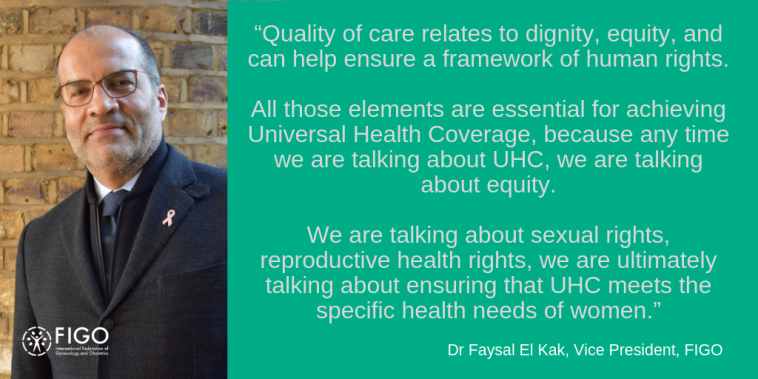Ensuring Quality of Care Throughout the Life Course
Our Women Deliver session 'Ensuring Quality of Care Throughout the Life Course for Girls and Women' will explore challenges and solutions to ensuring quality care.

Ensuring Quality of Care Throughout the Life Course for Girls and Women is the first in our collaboration with HelpAge International and NCD Alliance when we will explore challenges and solutions to ensuring quality care throughout the life course, with attention to age and gender sensitive approaches to health and wellbeing.
Many barriers to quality of care disproportionately affect women and children throughout their lives, from conception, pregnancy, birth infancy and childhood through to adolescence, adulthood and older age. This has a significant impact on health outcomes and overall wellbeing.
The birth of a child is supposed to be a happy time for families, but when women don’t have access to quality health care, childbirth becomes tremendously risky for both mother and child.
At Women Deliver, Faysal El Kak, Vice President of FIGO, will be addressing the importance of quality care during pre-conception, pregnancy and childbirth:
“The reproductive years are a key window of opportunity to provide integrated care for women and girls, therefore it is vital that the recommended standards of life saving care are delivered in all countries, everywhere, so that the lives of mothers and babies are not needlessly put at risk.”
Unfortunately, in many countries mothers and babies are put at risk because services do not meet the recommended standards for providing life-saving care. Poor quality of care is a core reason for high levels of maternal and child mortality. Data from UNICEF highlights that 303,000 mothers and 2.7 million newborn infants die annually around the time of childbirth.
In addition to quality care being safe, effective, timely, efficient and equitable, it also needs to be people‐centred. Quality, skilled attendance at birth is considered the most critical intervention for ensuring safe delivery.
Another vital intervention in quality care is improved provision of water and sanitation in health facilities. According to a 2015 World Health Organisation (WHO) report on water, sanitation and hygiene (WASH), in low- and middle-income country health facilities, 38 percent lack safe water, 19 percent lack sanitation and 35 percent lack water and soap for hand-washing.
The right to health, enshrined in the Universal Declaration of Human Rights (UDHR) as the right to the enjoyment of the highest attainable standard of physical and mental health, includes four core components:
- availability
- accessibility
- acceptability
- quality
Seen with a rights-based approach, quality of care for women and girls is clearly a question of equality as much as it is a question of survival.
Said Dr Faysal El Kak,
“Quality of care relates to dignity, equity, and can help ensure a framework of human rights. All those elements are essential for achieving Universal Health Coverage (UHC), because any time we are talking about UHC, we are talking about equity. We are talking about sexual rights, reproductive health rights, we are ultimately talking about ensuring that UHC meets the specific health needs of women.”
Sustainable Development Goal 3.8 emphasises universal health coverage (UHC) can only be achieved if we ensure access to quality essential health services and access to safe, effective, quality and affordable essential medicines and vaccines for all.
For the right to health to be met, challenges in relation to quality care must be overcome for all people, irrespective of age, gender, disability status or other characteristic.